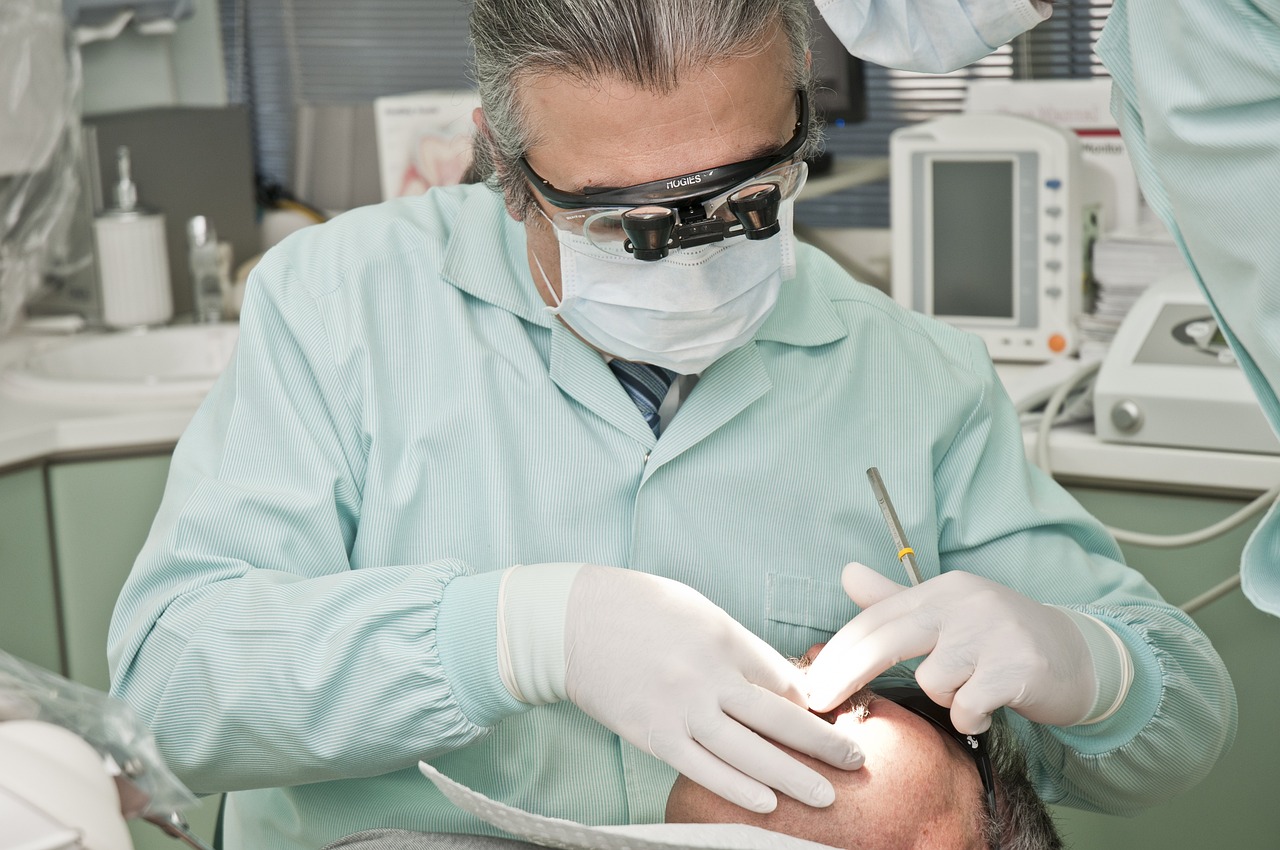Prosthodontics
- Home
- Prosthodontics
Prosthodontics
Prosthodontics is a branch of dentistry that focuses on the restoration and replacement of missing or damaged teeth. Prosthodontists are dental specialists who have completed advanced training in the design, fabrication, and fitting of dental prostheses, including dentures, bridges, and dental implants.
Prosthodontics is important because missing or damaged teeth can affect a person’s ability to eat, speak, and smile with confidence. Prosthodontists work to restore the function and appearance of a patient’s teeth, as well as their overall oral health.
Prosthodontic treatments can range from simple procedures, such as dental fillings and crowns, to more complex procedures, such as complete denture fabrication or full-mouth rehabilitation. Prosthodontists may work closely with other dental specialists, such as oral surgeons and periodontists, to provide comprehensive treatment for patients.
Overall, prosthodontics plays a vital role in helping patients achieve healthy and functional smiles, and improving their overall quality of life.

What Is The Definition Of Prosthodontics?
Prosthodontics is a dental specialty that focuses on the diagnosis, treatment planning, rehabilitation, and maintenance of oral function, comfort, appearance, and health of patients with missing or deficient teeth and/or oral and maxillofacial tissues, using biocompatible substitutes. This can involve the use of various dental prostheses, including dental implants, dentures, and fixed or removable dental bridges, to restore or replace missing or damaged teeth and surrounding tissues. Prosthodontists are dental specialists who are trained to diagnose and treat complex cases involving missing or damaged teeth and/or oral and maxillofacial tissues.
What do prosthodontists do?
Prosthodontists are dental specialists who are trained to diagnose, treat, and manage complex cases involving missing, damaged, or defective teeth and oral tissues. Some of the specific tasks and responsibilities of prosthodontists include:
Diagnosis and treatment planning: Prosthodontists use a variety of diagnostic tools and techniques, including digital imaging, to diagnose dental problems and develop comprehensive treatment plans tailored to each patient’s specific needs and goals.
Restoration and replacement of teeth: Prosthodontists are experts in the design, fabrication, and fitting of dental prostheses, including dentures, bridges, and dental implants. They can restore or replace missing or damaged teeth and surrounding tissues to improve oral function, comfort, and aesthetics.
Oral rehabilitation: Prosthodontists can develop comprehensive treatment plans for patients with severe oral problems, such as those with multiple missing or damaged teeth, jawbone defects, or other complex conditions. They may work with other dental specialists, such as oral surgeons and periodontists, to coordinate treatment and ensure the best possible outcomes.
Maintenance and follow-up care: Prosthodontists provide ongoing maintenance and follow-up care for dental prostheses, including adjustments, repairs, and replacements as needed. They can also provide guidance on oral hygiene, diet, and other factors that can affect oral health.
Overall, prosthodontists play a critical role in restoring and maintaining the oral health and function of patients with complex dental problems. They use advanced techniques and technology to provide high-quality care and help patients achieve healthy, natural-looking smiles.
what types of treatment do you need a Prosthodontist For?
Prosthodontists are specialists who are trained to diagnose, treat, and manage complex cases of dental and maxillofacial problems that involve missing, damaged, or defective teeth and oral tissues. Some of the treatments that require the expertise of a prosthodontist include:
Dental implants: Prosthodontists are experts in dental implant placement, restoration, and maintenance. They can diagnose and treat complex cases of missing teeth with dental implants, which are biocompatible titanium posts that are surgically implanted into the jawbone to provide a stable foundation for a dental prosthesis.
Full mouth rehabilitation: Patients with severe oral problems, such as severely worn, missing, or damaged teeth, may require a comprehensive full mouth rehabilitation treatment plan. Prosthodontists can develop a treatment plan that may include dental implants, crowns, bridges, or dentures to restore the function and appearance of the patient’s teeth and oral tissues.
Dentures: Prosthodontists are experts in the fabrication, fitting, and maintenance of dentures. They can develop custom dentures that fit comfortably and securely in the patient’s mouth, providing a functional and natural-looking solution for missing teeth.
Dental crowns and bridges: Prosthodontists can also diagnose and treat cases of damaged, decayed, or broken teeth with dental crowns and bridges. Crowns are prosthetic caps that fit over a damaged tooth, while bridges are prosthetic devices that replace one or more missing teeth by anchoring to adjacent natural teeth or implants.
Overall, prosthodontists play a vital role in restoring oral function, comfort, and aesthetics for patients with complex dental and maxillofacial problems.
Why would a general dentist refer a patient to a prosthodontist?
A general dentist may refer a patient to a prosthodontist for a variety of reasons, including:
Complex dental cases: Patients with complex dental problems, such as multiple missing or damaged teeth, jawbone defects, or other severe oral issues, may require the specialized skills and expertise of a prosthodontist.
Dental implants: Prosthodontists are experts in the placement, restoration, and maintenance of dental implants, which may be required for patients with missing teeth or other oral problems.
Full mouth rehabilitation: Patients who require comprehensive full mouth rehabilitation, which may involve a combination of dental procedures such as dental implants, bridges, or dentures, may benefit from the specialized care of a prosthodontist.
Cosmetic dentistry: Patients who are seeking cosmetic dental treatments, such as veneers or crowns, may benefit from the expertise of a prosthodontist, who can provide customized and natural-looking restorations.
Complex bite problems: Patients with complex bite problems, such as temporomandibular joint (TMJ) disorders or malocclusions, may require the specialized skills of a prosthodontist to diagnose and treat the problem.
In general, a general dentist may refer a patient to a prosthodontist when the patient’s dental needs exceed the scope of the general dentist’s expertise, or when specialized care is required to achieve optimal oral health and function.
What is the difference between an endodontist and a prosthodontist?
An endodontist and a prosthodontist are both dental specialists who have received advanced training in specific areas of dentistry, but they have different areas of focus and expertise. Here are the main differences between endodontists and prosthodontists:
Focus of Treatment: Endodontists specialize in treating issues related to the dental pulp and nerve, including root canals and other procedures aimed at saving damaged or infected teeth. Prosthodontists, on the other hand, focus on the restoration and replacement of teeth, including the design and placement of dental prostheses like dentures, bridges, and dental implants.
Education and Training: Both endodontists and prosthodontists are required to complete dental school and then receive additional training in their chosen specialty. Endodontists typically complete two to three years of advanced training in endodontics, while prosthodontists undergo three to four years of advanced training in prosthodontics.
Treatment Techniques: Endodontists use specialized techniques to treat dental pulp and nerve issues, such as root canal therapy and other procedures aimed at saving damaged or infected teeth. Prosthodontists use a variety of techniques to restore and replace teeth, including dental implants, bridges, and dentures.
Patient Types: Endodontists typically treat patients who are experiencing pain or discomfort related to damaged or infected teeth, while prosthodontists may treat patients who have lost one or more teeth or who require full mouth rehabilitation.
Overall, endodontists and prosthodontists both play important roles in maintaining and restoring oral health, but they have different areas of focus and expertise. Patients may be referred to one or both types of specialists depending on their specific dental needs.
What Is The Difference between Prosthodontists and Orthodontists?
Prosthodontists and orthodontists are both dental specialists who have received advanced training in specific areas of dentistry, but they have different areas of focus and expertise. Here are the main differences between prosthodontists and orthodontists:
Focus of Treatment: Prosthodontists focus on the restoration and replacement of teeth, including the design and placement of dental prostheses like dentures, bridges, and dental implants. Orthodontists focus on the diagnosis, prevention, and treatment of malocclusions (bite problems), using techniques such as braces and aligners to correct teeth and jaw misalignments.
Education and Training: Both prosthodontists and orthodontists are required to complete dental school and then receive additional training in their chosen specialty. Prosthodontists undergo three to four years of advanced training in prosthodontics, while orthodontists typically complete two to three years of advanced training in orthodontics.
Treatment Techniques: Prosthodontists use a variety of techniques to restore and replace teeth, including dental implants, bridges, and dentures. Orthodontists use specialized techniques such as braces and aligners to move teeth and jaws into proper alignment.
Patient Types: Prosthodontists may treat patients who have lost one or more teeth or who require full mouth rehabilitation. Orthodontists typically treat patients with malocclusions or other issues related to tooth and jaw alignment.
Overall, prosthodontists and orthodontists both play important roles in maintaining and restoring oral health, but they have different areas of focus and expertise. Patients may be referred to one or both types of specialists depending on their specific dental needs.
Is it better to go to an oral surgeon or a periodontist for dental implants?
Both oral surgeons and periodontists are trained to place dental implants, and both can provide high-quality care for patients seeking dental implant treatment. However, the best option for you will depend on your specific needs and preferences.
Here are a few factors to consider when deciding between an oral surgeon and a periodontist for dental implant treatment:
Experience and Expertise: Both oral surgeons and periodontists have extensive training in dental implant placement, but their areas of expertise may differ. Oral surgeons may have more experience with complex implant cases or patients who require additional surgical procedures, while periodontists may have more experience with patients who have gum disease or other issues related to the health of the gums and jawbone.
Comfort and Confidence: It’s important to feel comfortable and confident with your dental implant provider, as the process can take several months and involve multiple appointments. Consider scheduling consultations with both an oral surgeon and a periodontist to get a sense of their communication style, bedside manner, and overall approach to treatment.
Referral from Your Dentist: Your general dentist or other dental specialist may recommend a particular oral surgeon or periodontist based on their previous experience working with that provider, as well as your specific dental needs.
Ultimately, the decision of whether to see an oral surgeon or periodontist for dental implant treatment will depend on your unique circumstances. It may be helpful to consult with both types of providers to get a sense of their experience, expertise, and approach to care, and then make an informed decision based on your personal preferences and needs.
How To Pick A Prosthodontist?
Choosing the best prosthodontist can be an important decision as they will be responsible for the restoration and maintenance of your oral health and appearance. Here are some factors to consider when selecting a prosthodontist:
Credentials and experience: Look for a prosthodontist who is board-certified and has completed advanced training in prosthodontics. Consider their experience, education, and credentials to ensure they have the necessary skills and expertise to diagnose and treat complex dental problems.
Referrals and reviews: Ask your family, friends, or other healthcare professionals for referrals to prosthodontists they trust. You can also check online reviews and ratings to get an idea of the quality of care provided by the prosthodontist.
Technology and equipment: Choose a prosthodontist who uses modern and advanced technology and equipment to provide high-quality dental care. This includes digital imaging, CAD/CAM technology, and other innovative tools that can improve the accuracy and efficiency of dental treatments.
Communication and bedside manner: It’s important to find a prosthodontist who communicates effectively and listens to your concerns and questions. They should be able to explain your treatment options in a clear and understandable way and make you feel comfortable and confident in their care.
Cost and insurance: Consider the cost of treatment and whether the prosthodontist accepts your dental insurance. Some prosthodontists may offer financing options or payment plans to help make treatment more affordable.
Overall, taking the time to research and select the right prosthodontist can help ensure you receive the best possible care for your oral health and appearance.
Find The Best Prosthodontist Office Today
Find And Review Local Prosthodontist Office
On The Dental Office Network!

